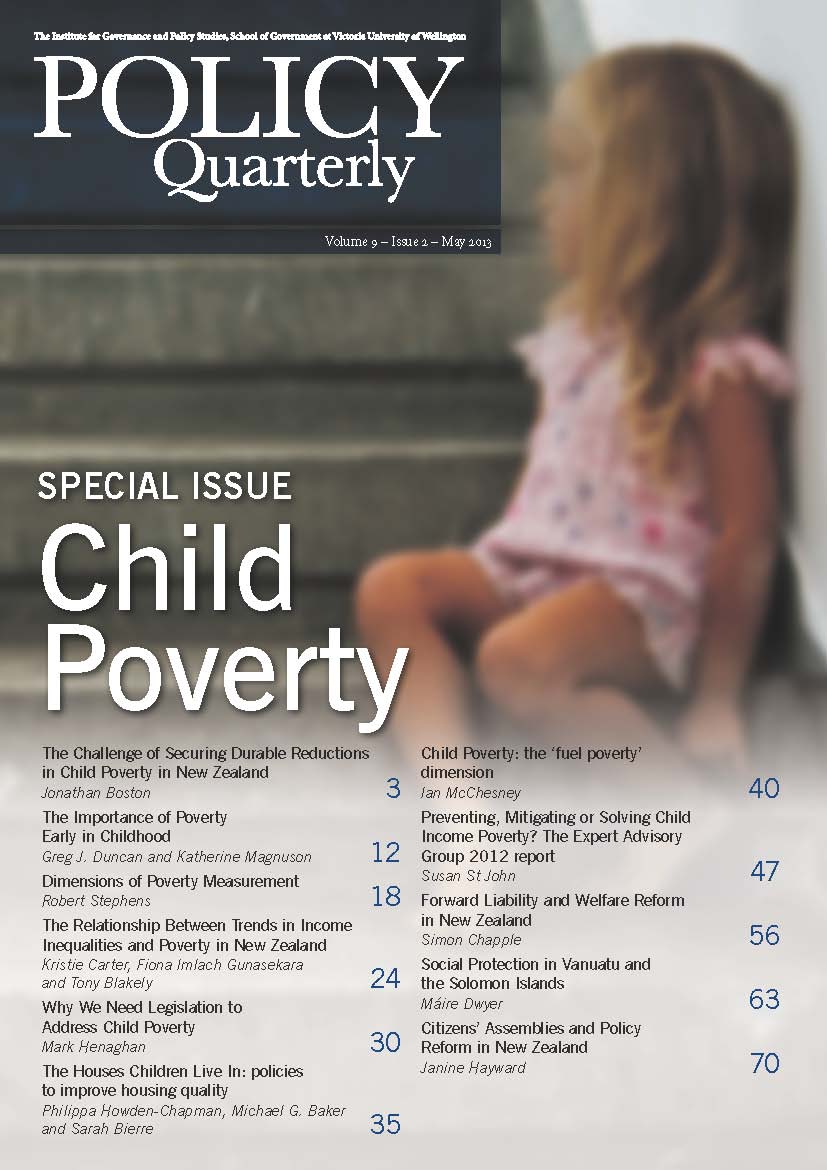Forward liability and welfare reform in New Zealand
DOI:
https://doi.org/10.26686/pq.v9i2.4449Keywords:
‘investment approach’, New Zealand welfare system, increase living standards, ‘future liability’ or ‘long-term liability’, performance management tool, Welfare Working Group, Long-term benefit dependencyAbstract
In November 2012, Gabriel Makhlouf, the secretary to the Treasury, gave a wide-ranging speech to the Trans- Tasman Business Circle which discussed, among other things, recent reforms in the welfare system. He described the new ‘investment approach’ as a significant change to the New Zealand welfare system, which he suggested would effectively get people back into work, reduce poverty and increase living standards. The overarching welfare reforms announced and being implemented by the current government are in large part constructed around this investment approach, which provides a central policy narrative to the reforms. The centrality of the investment approach is expressed via the operational use of a measure of what is variously termed ‘forward liability’, ‘future liability’ or ‘long-term liability’ of the welfare system as the key performance management tool for Work and Income. Forward liability (the term exclusively used here) is basically the total current and future fiscal costs of welfare, appropriately discounted.
Downloads
Downloads
Published
Issue
Section
License
Permission: In the interest of promoting debate and wider dissemination, the IGPS encourages use of all or part of the articles appearing in PQ, where there is no element of commercial gain. Appropriate acknowledgement of both author and source should be made in all cases. Please direct requests for permission to reprint articles from this publication to Policy-Quarterly@vuw.ac.nz.



